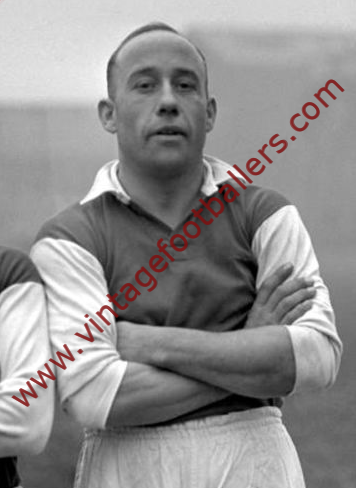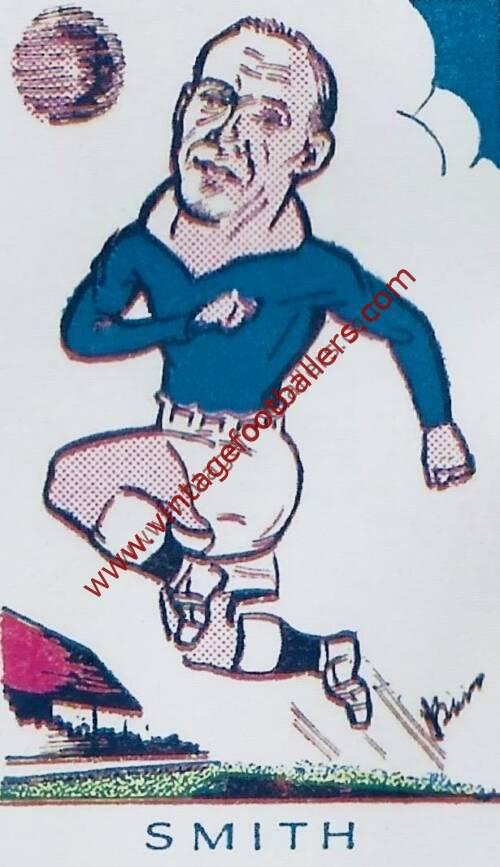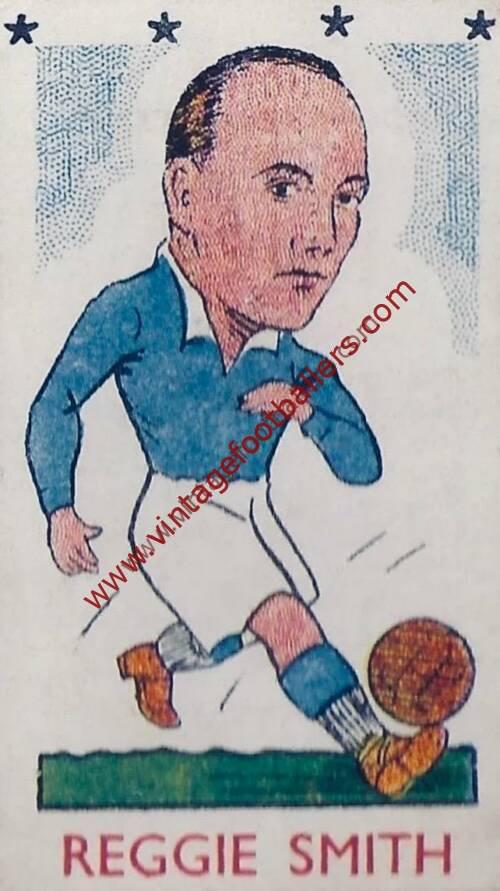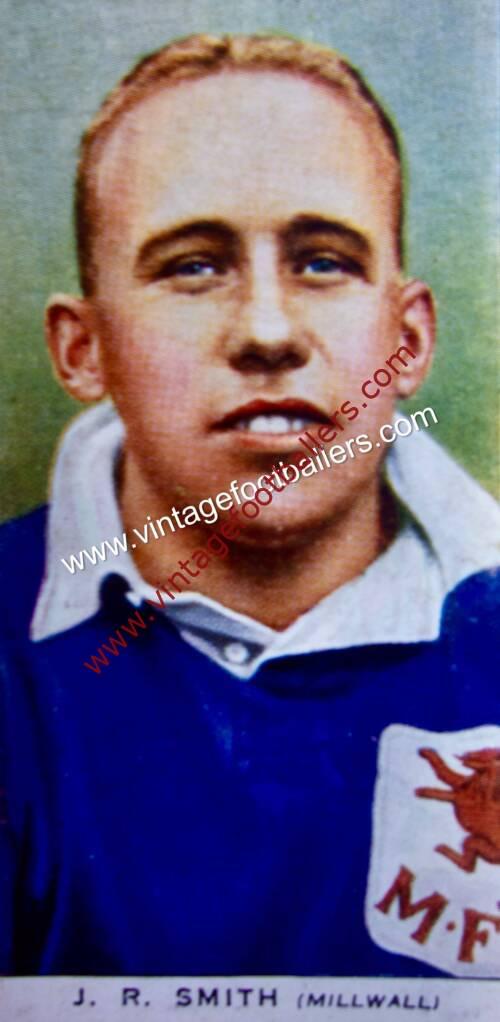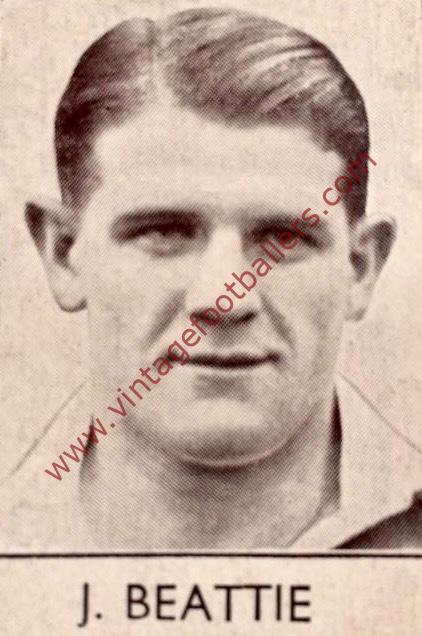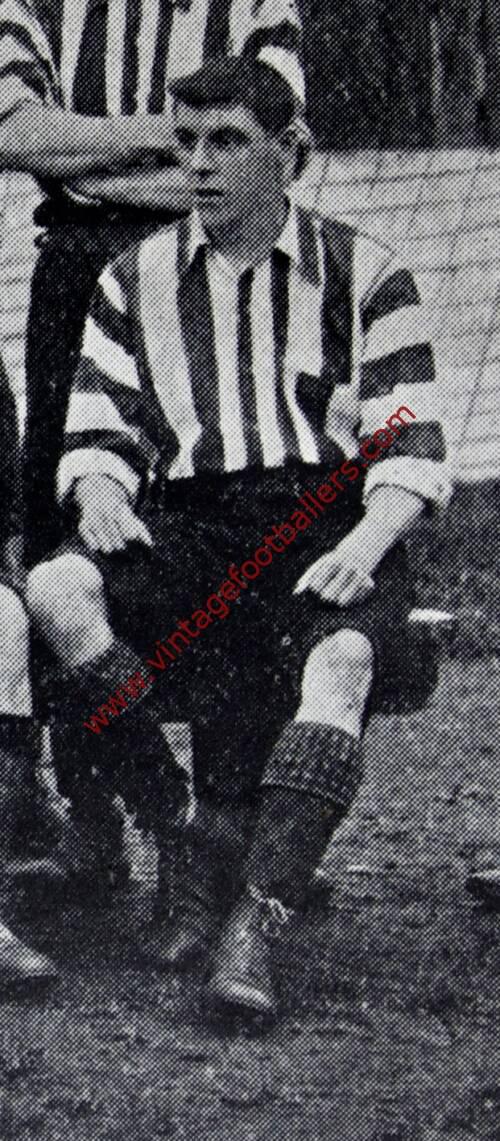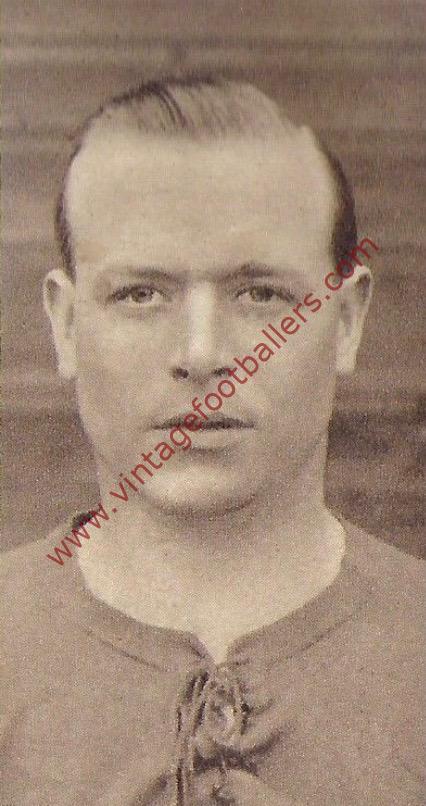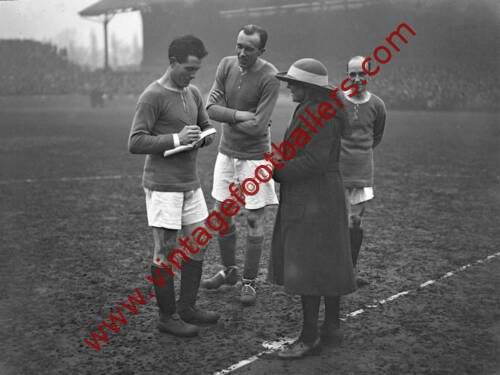Description
The son of a South African Rugby Union international, Battersea, London born outside left Reggie Smith began his career as an amateur with Pirton in 1930 and joined Hitchin Town in 1931, playing in one of that club’s finest teams and helping them to the Spartan League title in 1935. While an amateur he represented The Spartan League and The Hertfordshire FA. He also had a spell as an amateur on the books of Tottenham Hotspur in 1932-33 without making their first eleven, playing for their nursery club Northfleet in 1932, and he played for St Albans City in 1934 before turning professional when he joined Third Division (South) club Millwall later that year.
He made his Football League debut at Coventry City in September 1935, helping The Lions to beat Manchester City in the quarter finals of the 1937 FA Cup, also playing in their narrow 2-1 FA Cup semi final defeat to eventual winners Sunderland at Leeds Road, Huddersfield, the first time a team from the third tier of English football had reached that stage. Described as “a fine marksman on the wing… he takes his chances with resolution and is a deadly shot with both feet… [he] has the rare and invaluable faculty of rising to the peak of his form on the big occasion”, in the 1937-38 season Smith enjoyed even greater success, as Millwall hurtled to the Division Three (South) Championship, while also claiming the London FA Challenge Cup by defeating Crystal Palace.
Smith became Millwall’s last full England international in 1938, when he was selected for two matches in seven days in November, despite only playing in the English second tier at the time. He scored twice on his debut versus Norway in a 4-0 win at St James’ Park, Newcastle, but didn’t score in a 7-0 defeat of Ireland at Old Trafford.
When the Second World War broke out in September 1939 and peacetime football was abandoned, Smith, like many other footballers, found his career disrupted. He joined the RAF and continued to appear sporadically for Millwall when his military schedule allowed. He was transferred to RAF Leuchars in Fife in 1944 and subsequently turned out for Dundee as a guest in the wartime North Eastern League. When the hostilities finished he resumed with Millwall appearing for them in the 1946 FA Cup, before he joined The Dark Blues on a permanent deal in March 1946, by when he had moved to play at left half, helping them to the B Division title in 1946-47, also becoming their club captain. While at Dundee he was described as “one of the best buys Dundee ever made… a grand captain always ready and willing to give a helping hand or useful advice to younger players”.
In June 1948 he briefly returned to England as player manager of Corby Town, but he soon returned to Dundee initially as player-coach, becoming manager of their rivals Dundee United in September 1954. After two seasons of steady mid-table finishes, he resigned to take over as manager of Falkirk (then bottom of Division One) in January 1957. Three months later, Smith had saved The Bairns from relegation and led his new club to victory in The Scottish Cup Final, where they beat Kilmarnock 2-1 in a replay.
In the summer of 1959, Smith was approached by old club Millwall to replace Jimmy Seed as manager, and he returned to the Londoners for the beginning of the 1959-60 season. His side started well, setting a Millwall record 19 match unbeaten run. However, a high proportion of draws ensured they finished no higher than fifth, just missing out on promotion from Division Four. Despite challenging at the top of the table again the following season, Millwall sacked Smith in January 1961, replacing him with assistant Ron Gray.
Smith then moved to South Africa to become manager of Addington, but returned to England later in the year when he was appointed manager of Bedford Town in November 1961. He resigned in September 1963, but was persuaded to stay on until December. He subsequently returned to Addington and then managed Cape Town Spurs before returning to Bedford in November 1971, remaining in post until June 1972. He was appointed assistant manager at Stevenage Athletic for the 1972-73 season, before retiring from football.
